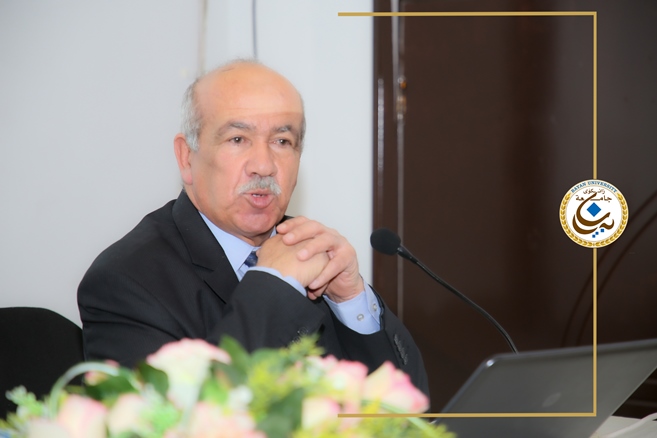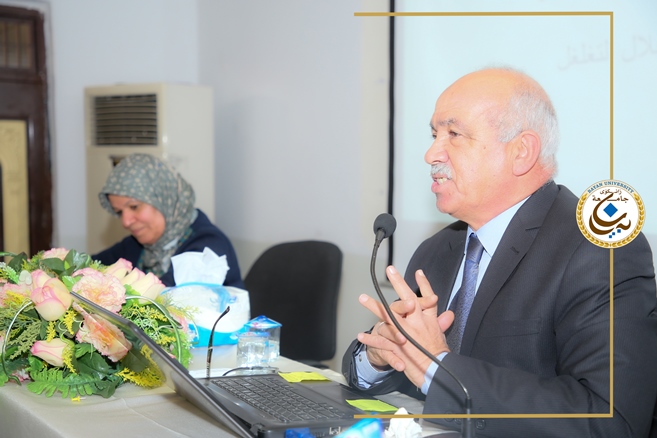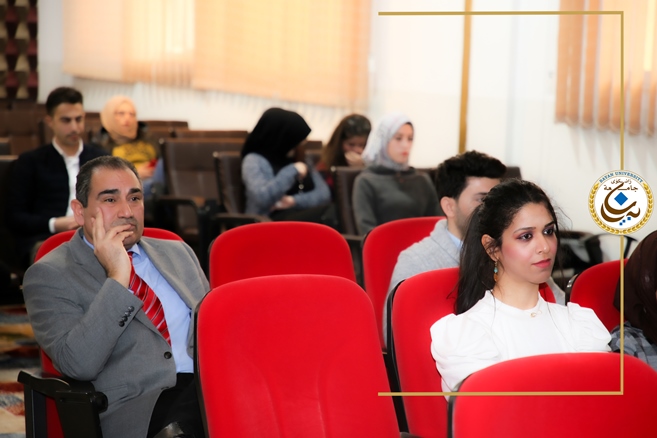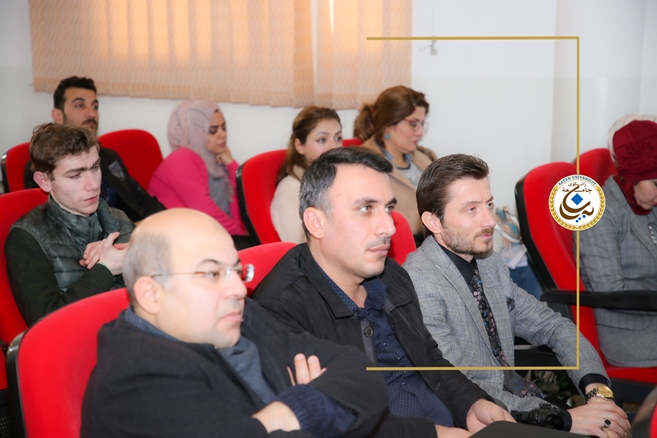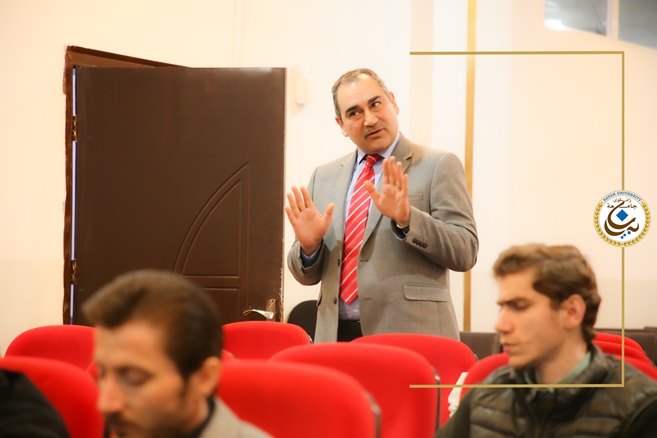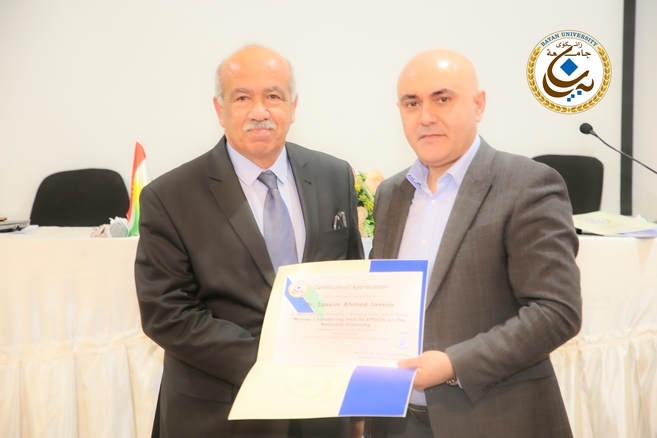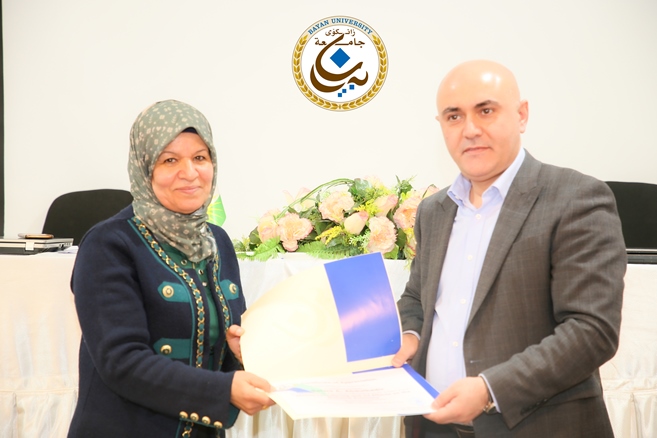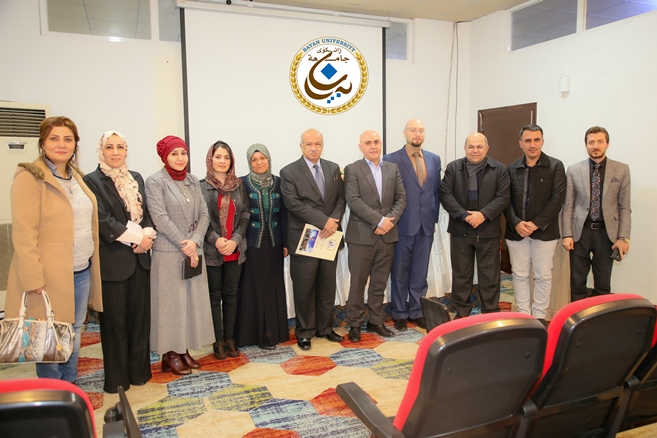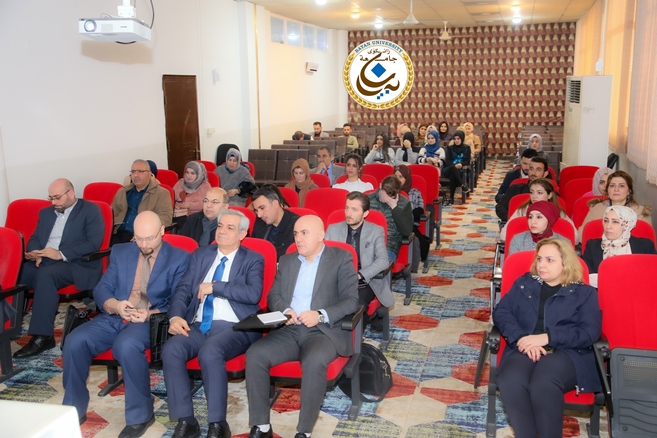 On Wednesday 19/2/220, the Accounting Department presented a workshop entitled (Money Laundering and its Effects on the National Economy) It was supervised by Dr.Jassim Ahmed Jassim,a lecturer at Al-Nsoor University in the capital, Baghdad,Phd of international affairs, and Lecturer: Salwa Abdul-Jabbar Abdul-Qadir - Lecturer at Bayan University \ Accounting Department - Master in Banking Management
On Wednesday 19/2/220, the Accounting Department presented a workshop entitled (Money Laundering and its Effects on the National Economy) It was supervised by Dr.Jassim Ahmed Jassim,a lecturer at Al-Nsoor University in the capital, Baghdad,Phd of international affairs, and Lecturer: Salwa Abdul-Jabbar Abdul-Qadir - Lecturer at Bayan University \ Accounting Department - Master in Banking Management
In the presence of the President of Bayan University (Fouad Mawlid Sharif) and the Assistant President of the University for Scientific Affairs (Dr. Bengeen massih oudel) and a number of faculty deans, department heads and teaching staff at the university
The workshop was opened with a welcome speech to attendees, and then Professor Salwa, the first topic that addressed it - the emergence of a concept and definition of money laundering phenomenon.
The importance of the workshop:
Emphasis has been placed on identifying the origins of money laundering and the term money laundering that originated in 1931 at the Court of Alphonse Capone. This term describes one of the most important stages through which mafia gangs receive money, which comes mainly from extortion, theft, gambling, and drug trafficking, among others.
The objective of the workshop: - Study and analyze the nature of the relationship between banking strategies and the development of money laundering operations, as well as identify the negative effects of money laundering operations and identify the international efforts in the field of combating money laundering operations The term money laundering is defined by several definitions, the most important of which are: The definition of the European Commission for Money Laundering in 1990 as the process of transferring funds obtained from criminal activities aimed at hiding or denying the illegal and attained source of this money or assisting any person who committed a crime to avoid legal liability to keep the proceeds of this crime.
Reasons for the emergence of money laundering.
Money laundering sources, agreements and international efforts to combat money laundering.
- Obstacles to fighting money laundering.
- Traditional methods of money laundering.
Digital methods of money laundering using the Internet, virtual currencies and websites. Suspicious (the dark internet).
The most important reasons for the emergence of the phenomenon of money laundering:
Increasing globalization.
- Increasing the volume of electronic commerce and fast financial transactions.
Global economic openness.
- Significant technological progress in the field of banking transactions and transfers, ... etc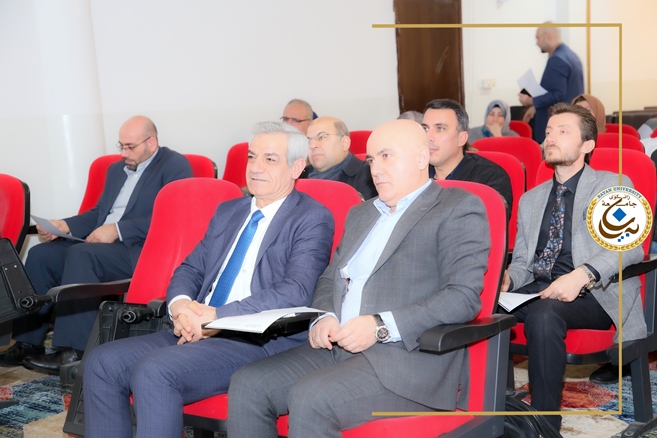
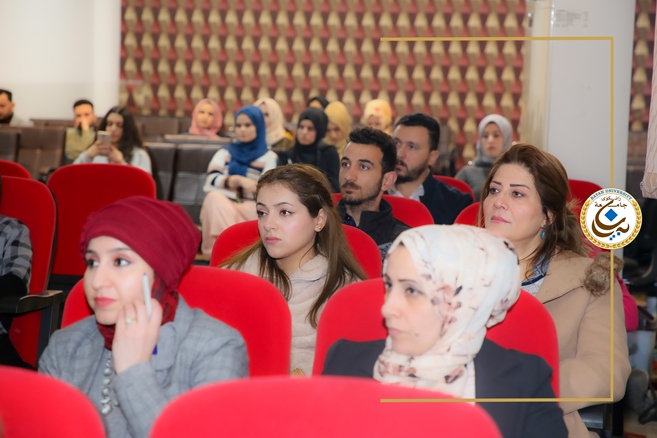
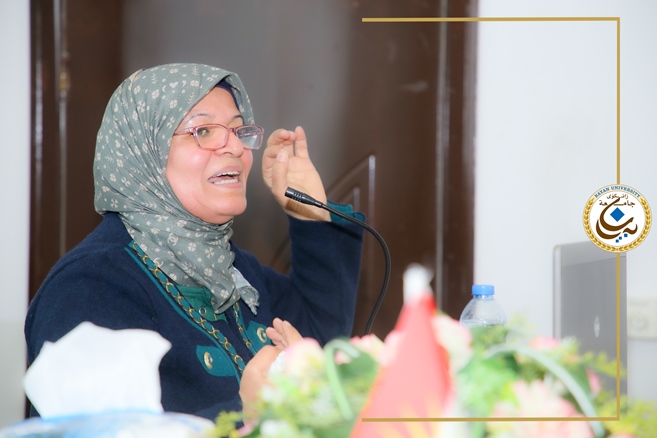
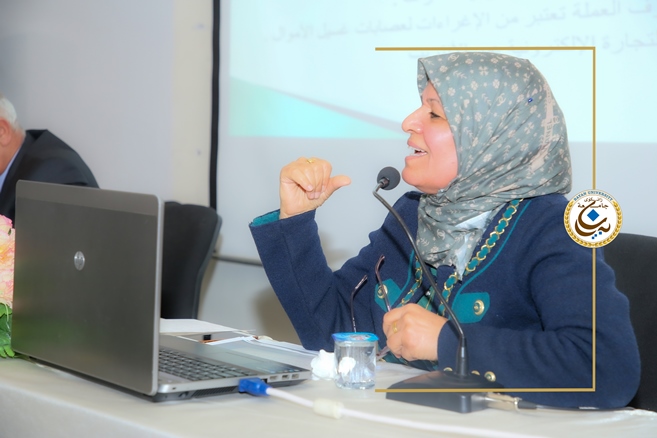
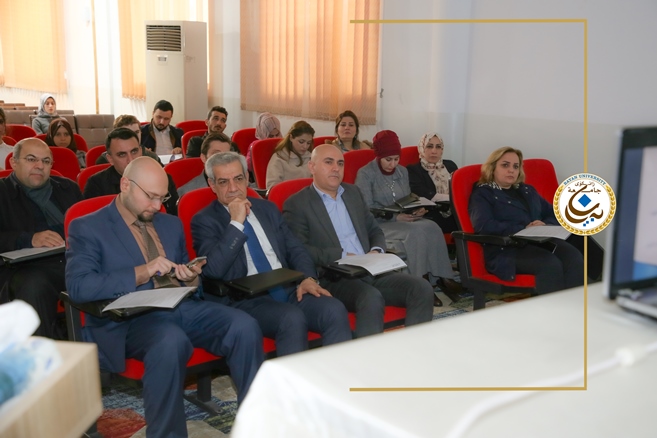
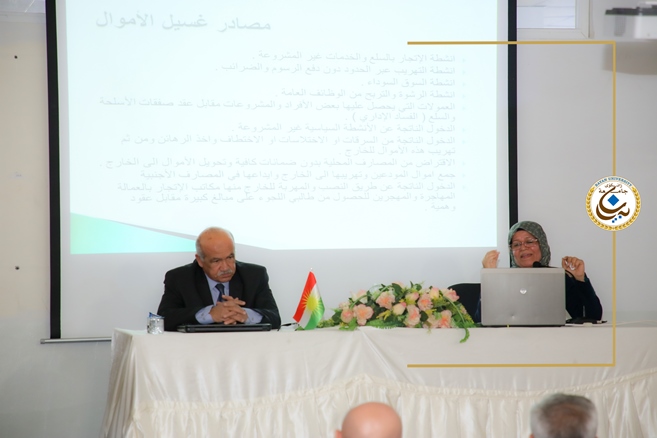
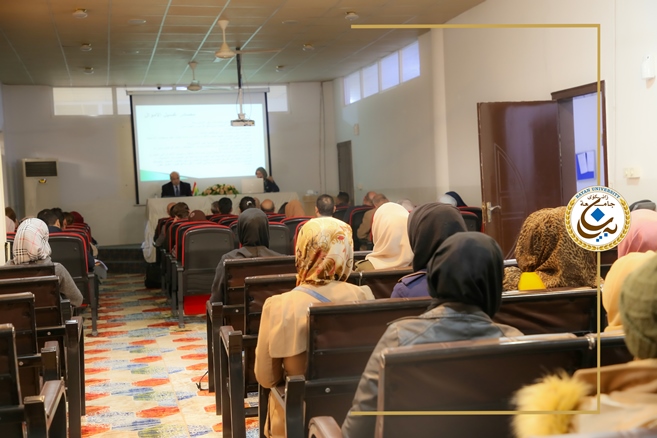
After that, Dr. Jassim Ahmed presented the second axis, which dealt with both
The stages of money laundering.
- Economic and social effects on society as a result of money laundering operations after the workshop ended. During the workshop some of the professors asked a number of questions to the lecturers about money laundering and globalization and its causes and about more information about what was discussed in the workshop and reached some recommendations that would limit this matter
Where some expressed their benefit from this workshop and its intention to attend the upcoming workshops held by the university.
At the end of the workshop, Dr. (Fuad Mawlood Sharif) the head of university thanked both professors for the amazing work
